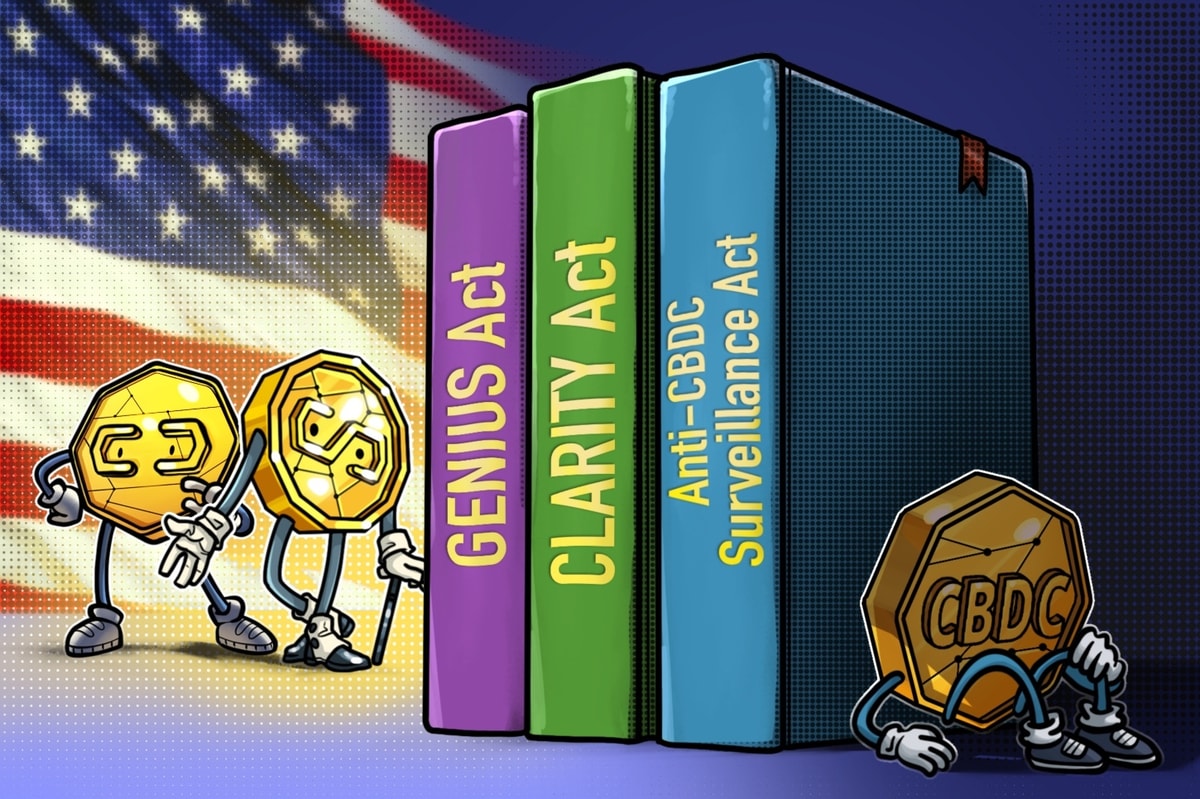July 28, 2025
5 min read
Turner Wright
Rep. Tom Emmer’s Anti-CBDC bill aims to restrict the Fed’s ability to issue a digital dollar that emulates cash, promoting privacy and permissionless use.
Anti-CBDC Bill Could Limit Federal Reserve’s Control Over Digital Dollar, Says Sponsor
Representative Tom Emmer, sponsor of the US House’s Anti-CBDC Surveillance State Act, stated that the bill would significantly limit the Federal Reserve’s ability to issue a central bank digital currency (CBDC). In a press call on Friday, Emmer, a Minnesota representative, discussed the progress of the Anti-CBDC bill he introduced in March. He explained that while the US government, including the Federal Reserve, could explore issuing a digital dollar that "emulates cash," current law does not grant them this ability.“If [the Fed] could emulate cash, then the law is going to afford them that ability, but right now, they can’t,” said Emmer.The bill was one of three crypto-related pieces of legislation passed by the House of Representatives in July as part of Republicans’ "crypto week" agenda. However, it received the least support from House Democrats. According to Emmer, the bill would allow any US government entity, including the Federal Reserve, to develop a digital dollar only if it emulates cash in specific ways and remains "open, permissionless, and private." The legislation proposes amending the Federal Reserve Act to bar federal banks from issuing "any digital asset that is substantially similar" to a CBDC. Of the three bills passed by the House on July 18, only the GENIUS Act, which regulates stablecoins and has already passed the Senate, was signed into law by President Donald Trump. The Senate is expected to consider the Digital Asset Market Clarity (CLARITY) Act and Emmer’s CBDC bill after returning from its August recess.
Republicans Set September Goal for Crypto Market Structure
While the CBDC bill remains on the Senate’s agenda, Republican leaders have indicated they will prioritize the CLARITY Act, aiming to pass it before October. Wyoming Senator Cynthia Lummis, chair of the Senate Banking Committee’s digital assets subcommittee, has advocated for the Senate to remain in session through August to address some of Trump’s nominations, including prospective Commodity Futures Trading Commission Chair Brian Quintenz. A spokesperson for Senator Lummis told Cointelegraph that she would also use this time to help "execute the president’s agenda," signaling preparation for the crypto market structure bill. As of early August, the Senate is still scheduled to recess on August 3.Related: Fate of crypto, CBDC bills unclear as US Congress heads into recess
Source: Originally published at Cointelegraph on July 28, 2025.

